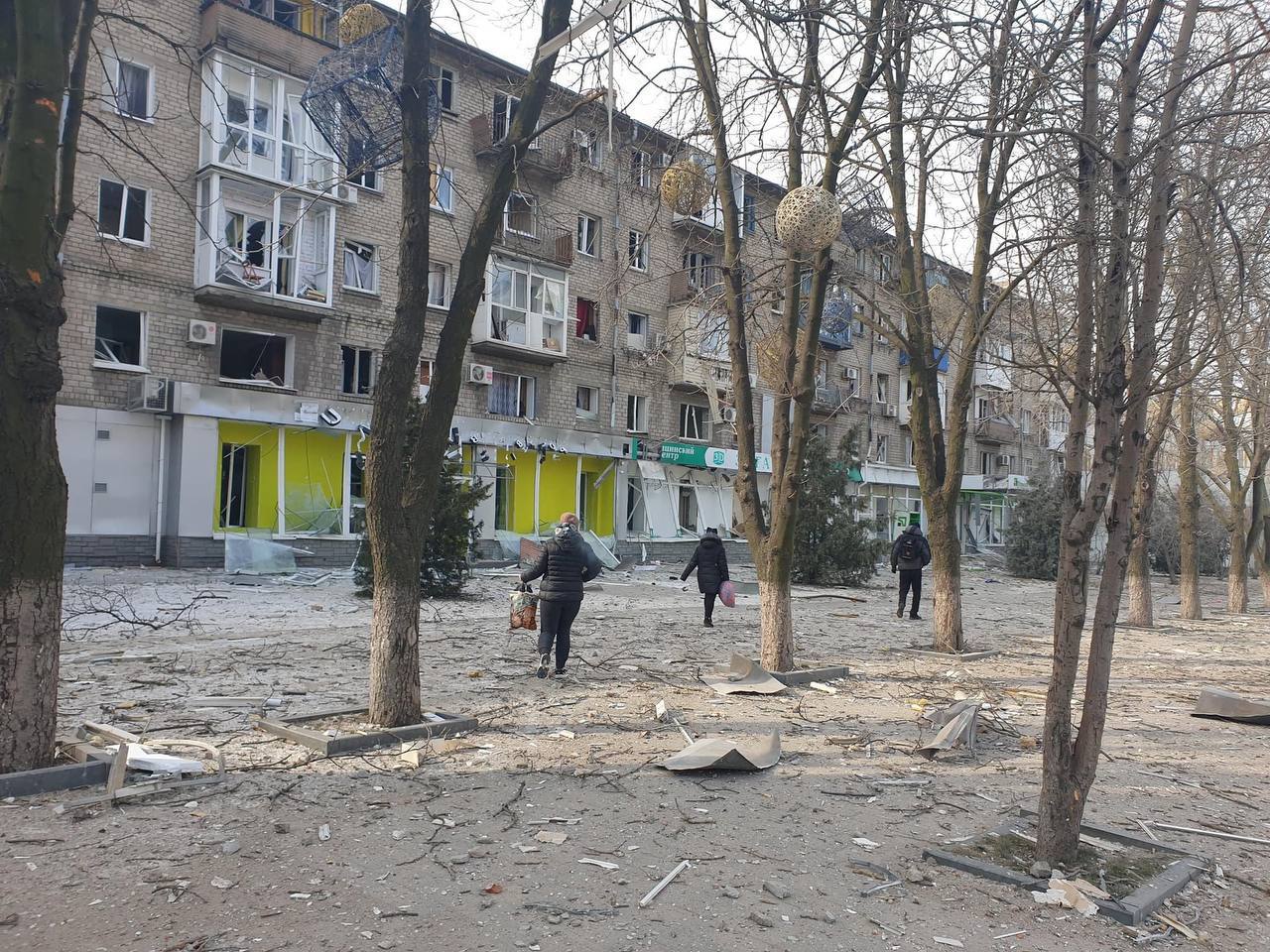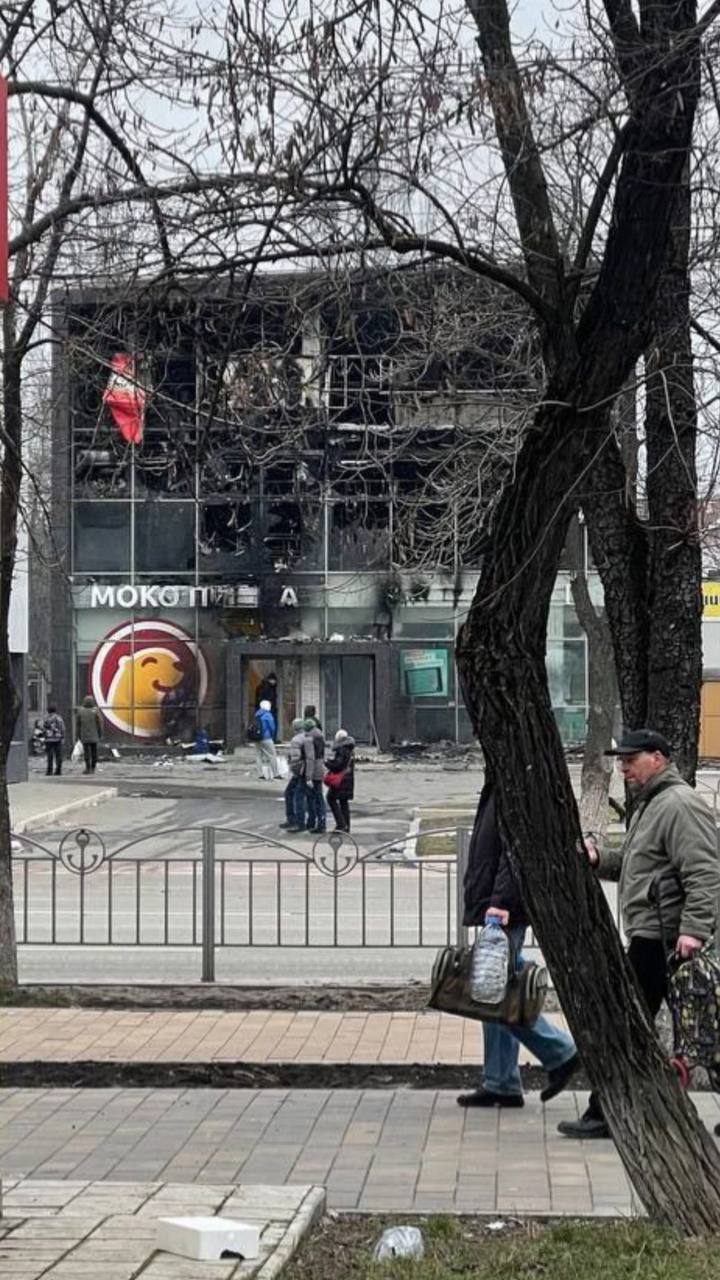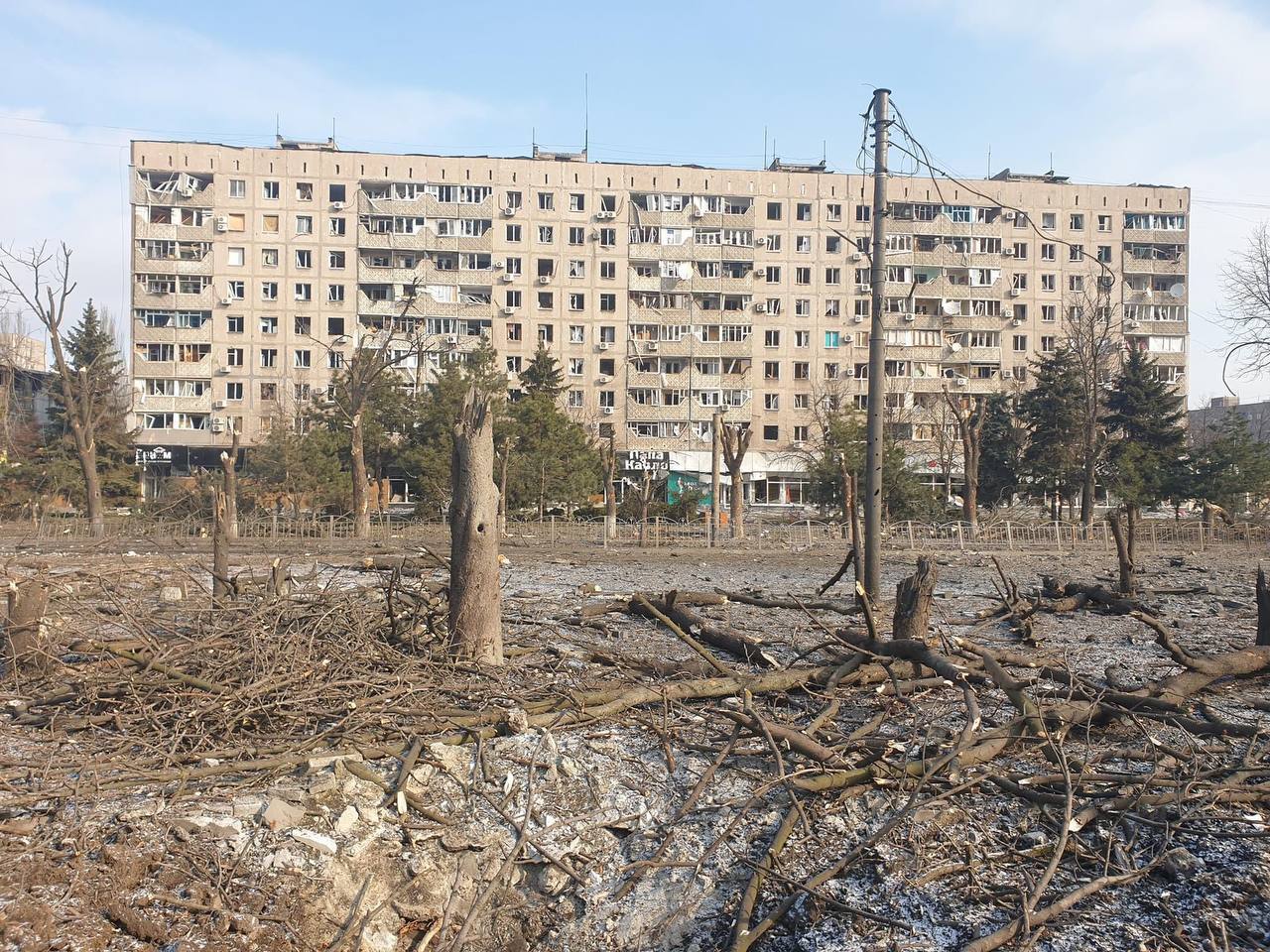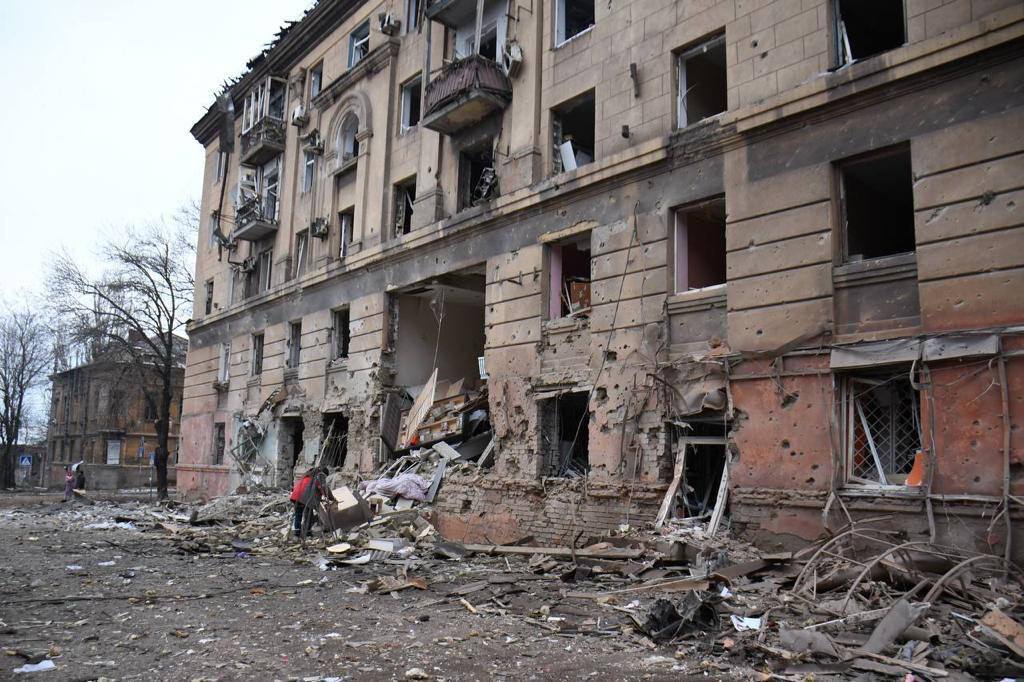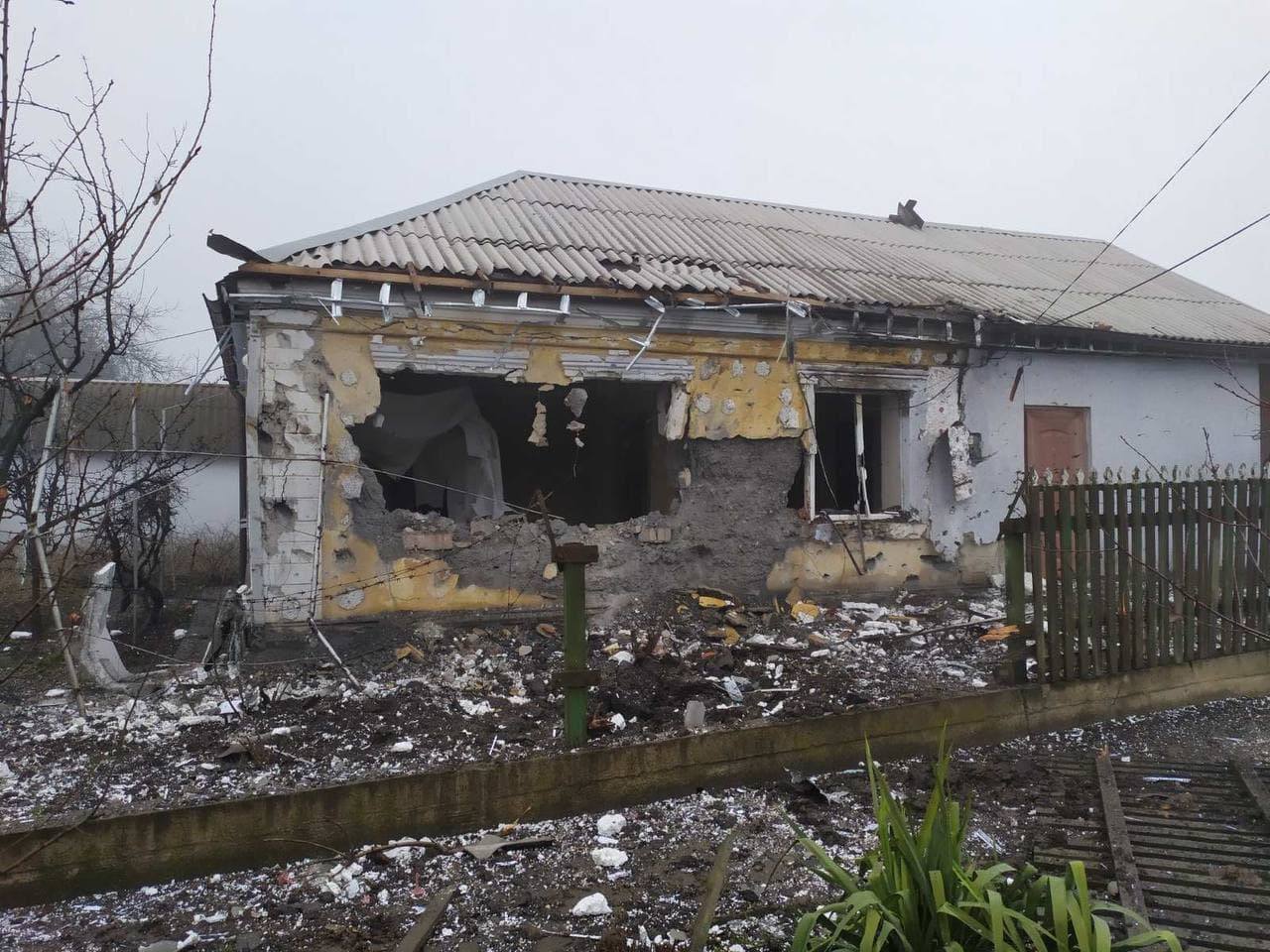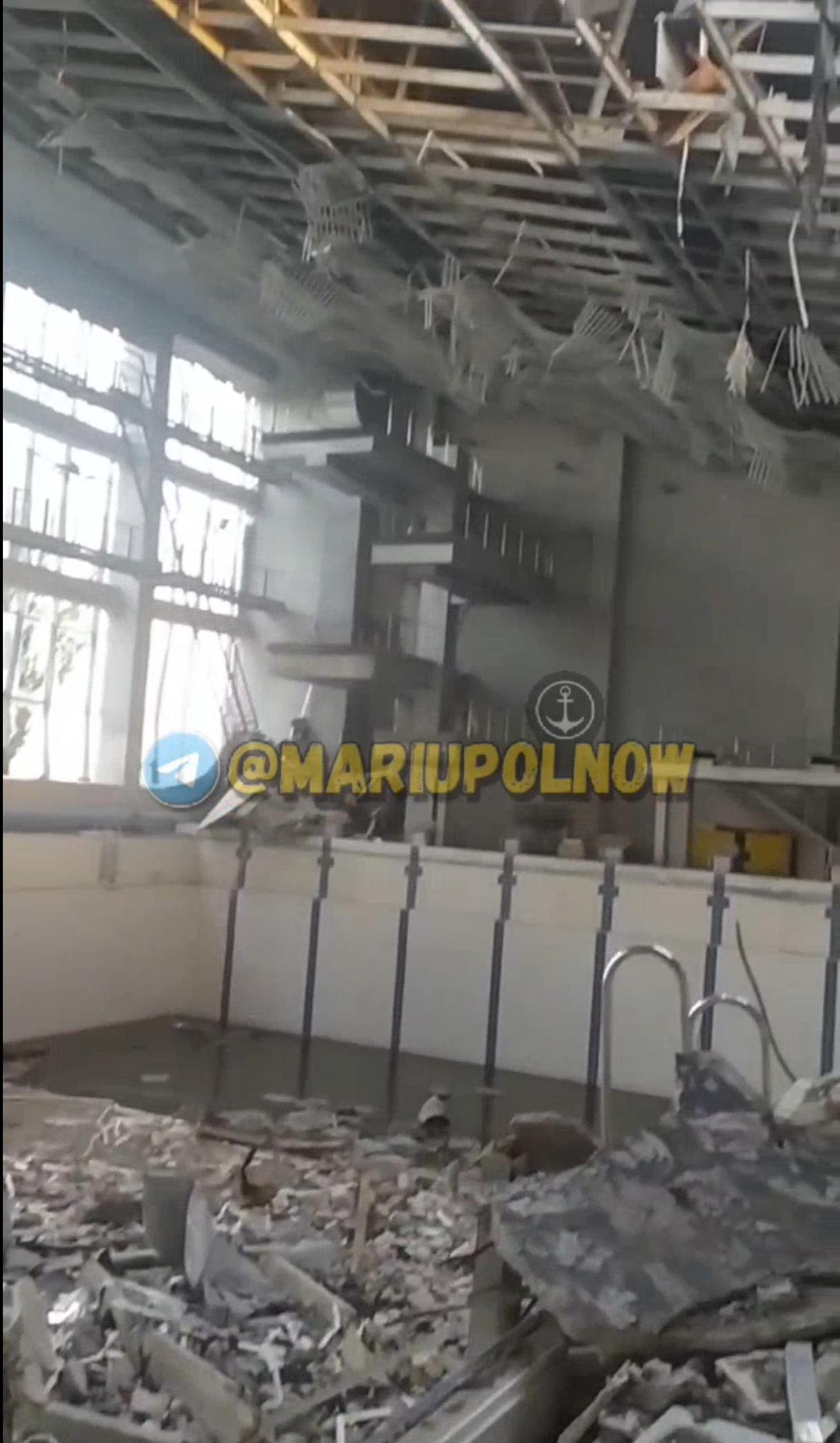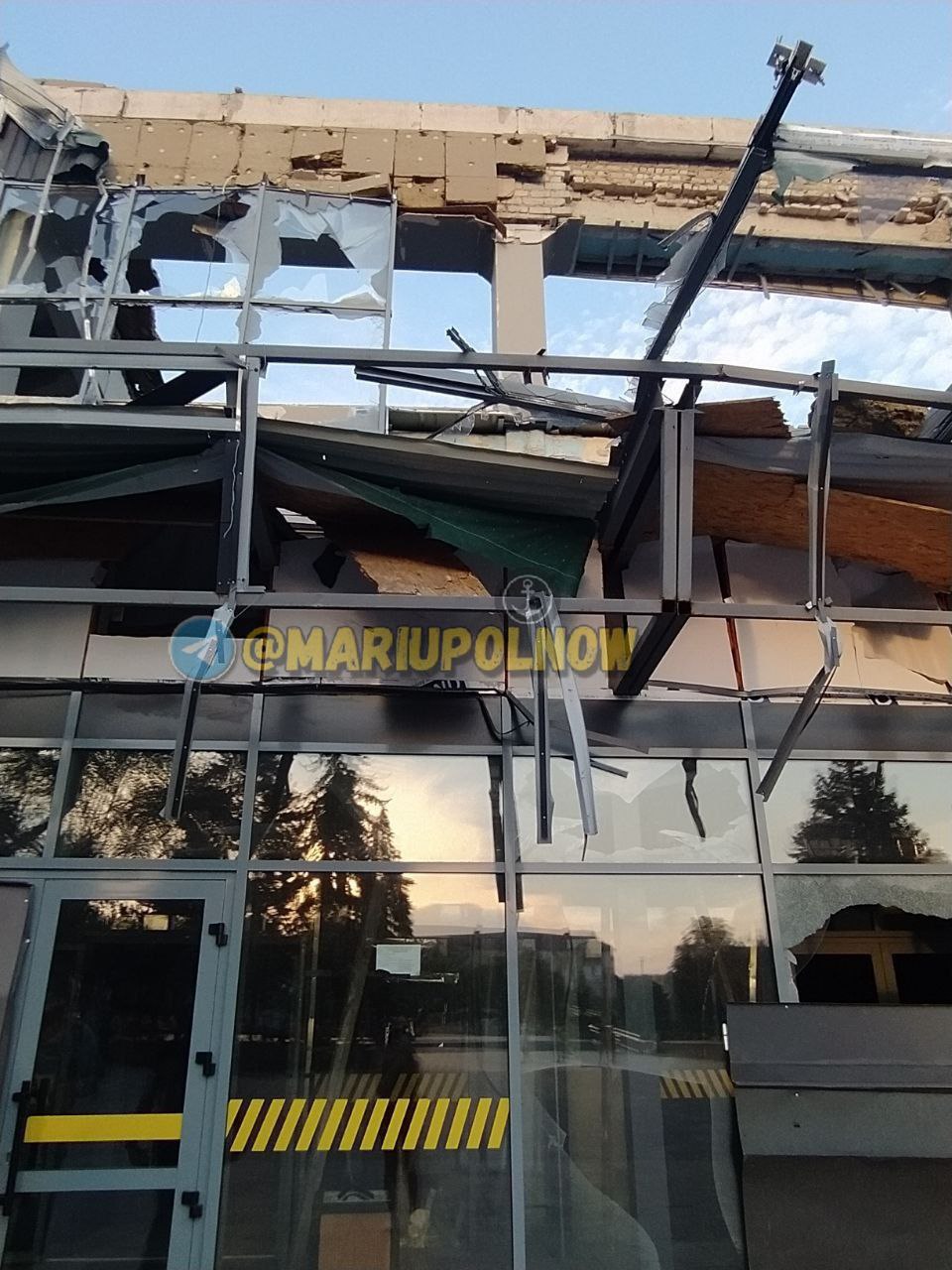There were tears in her eyes when she agreed to be interviewed. After that, to be honest, it was scary to ask about her experiences in Mariupol. But I didn’t have to ask a lot of questions – the girl told me shocking details of her three weeks of survival in the city after the very first question. For Daria Markovych, this conversation is a desire to shout out to the world rather than to reflect. “I do this because I want people to know. They should know about the russians’ crimes and the hell that people in besieged Mariupol had to go through in March 2022.” Sorry, it is going to hurt.
“IN A MATTER OF DAYS, IT WAS NO LONGER POSSIBLE TO LEAVE THE CITY BY RAIL, AND VOLLOVAHA WAS RAZED TO THE GROUND”
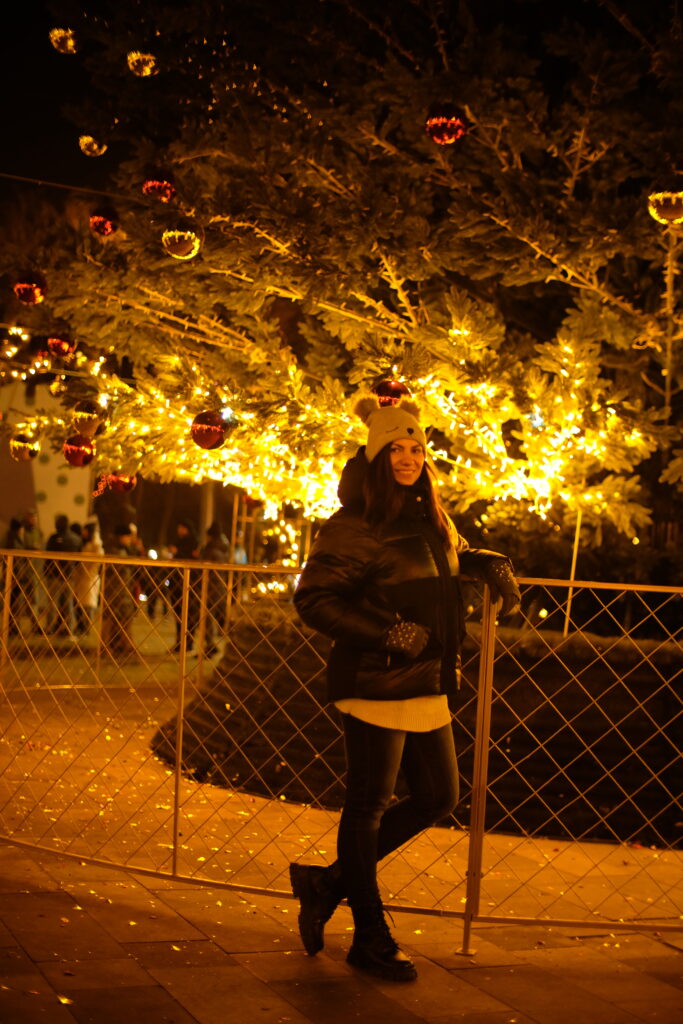
Of course, before February 24, Daria and her family read the news and knew that russia concentrated its troops along the borders. Dasha’s management discussed options with the staff in case “it happens”, people prepared bug-out bags, thought about an evacuation plan. However, as the girl says, she and many people in Mariupol “were a bit reckless”, because they could hear explosions close to the city from 2014, so the locals were used to them. They thought nothing extraordinary could happen. However, it could.
That morning, Daria didn’t wake up from explosions – at that time she could still sleep very well. She was woken up by a call from a colleague:
– Hello, Dasha, what are you going to do?
– What do you mean?
– Don’t you know? The war has begun.
It was 7:15. Her mother was making breakfast in the kitchen. The girl turned on the news and began shaking.
Colleagues and friends called, discussed what to do. Some were going to drive themselves; some were going to pay a crazy 30,000 hryvnias for a taxi to Dnipro. But everything was in order: electricity, water, gas, internet and communications, and they had already gone through all that in 2014.
“I lived in the Kalmius district. Near me was the Neptune swimming pool, which was about to open, and a military hospital. The house overlooked the Azovstal metallurgical plant. I offered my mother to leave, but she did not want to. She said, if the windows were broken, we would board them up, if the house was on fire, we would put it out. Besides, Mom played in the orchestra and said she hadn’t taken her violins from the philharmonic and the music school, and she would not leave without them. Mom found a million reasons to stay.”
The women stayed in the apartment with a cat and a hope that they would be spared.
“The Eastern [district] was already bombed, and I went there to see my friends – a missile hit their house, they needed some plastic wrap for the windows. People there were running around in panic, stopping cars to get out somehow. I took two families to the train station. Back then there was still a train to Kyiv. Mariupol is a dead-end train station. In front of us was Volnovakha, where heavy fighting was already going on. In a matter of days, it was no longer possible to leave the city by rail, and Volnovakha was razed to the ground. On February 27 or 28, the last evacuation train left and they bombed the way to Volnovakha.”
“I KNEW IT MIGHT BE MY LAST BIRTHDAY. I CELEBRATED MY 30 YEARS UNDER FIRE”
The city got actively involved in volunteering. People carried warm clothes and blankets to the victims, stood in lines to donate blood, collected money and, while supermarkets were open, bought food for the military. A week later, they were looking for food for themselves.
“I volunteered, helped as much as I could. Until March 1, we still had sirens, and then electricity disappeared, then communications. It became scary to go outside. I relied on the fact that shops were open and there was food there. We didn’t stock up on food. Miraculously, just a few days before the full-scale war, I bought 2 kilos of food for my cat on sale, although I had never done that before. It helped him survive.”
March 5 is Dasha’s birthday, so she and her friend next door decided to go shopping and buy something for the party.
“For me, birthday celebration has always been a special ritual when I gathered my kith and kin. I understood that could be my last birthday. I really wanted to see my family’s faces, hold hands. I wanted to remember every day and do something that could make me happy.”
A few days before, Dasha managed to withdraw 3,000 hryvnias in cash, and then ATMs stopped working.
“We saw windows and doors in all shops being broken and looting started. The military broke the windows before our eyes. They understood that the city was already besieged and there would be no help. And if they didn’t do that, people would loot uncontrollably. People took everything: washing machines, mobiles. Soldiers stopped those who took out alcohol and broke bottles. It was horrible, like a zombie apocalypse movie: empty-eyed people clambering over the counters and grabbing everything they saw. And we wanted to buy! We had money! But no one needed the money. It was very strange: you know you have money, but you can’t buy medicine, food, or cat food. Money depreciated and live exchange of goods began. Cigarettes became a currency.”
After that, active shelling began, planes flew somewhere far away, and houses began to burn.
“It’s very scary to walk through the city and see houses burning like candles because there was no water to put them out. I celebrated my 30th birthday in a basement under shelling. Mom had a bottle of wine, which cheered us up a bit.”
“SOME PEOPLE LOST THEIR MINDS AND WENT OUT THE WINDOW”
People were promised evacuation. They waited in the frost, but the russians never gave them corridors. Someone went at their own risk, many were shot on the way.
“I was devastated, constantly crying, it was very scary. I tried not to cry in front of my mother. I went to my room and lost my temper in the evenings.”
One day, a familiar male voice called Daria. It was her ex-boyfriend. His family’s house in Skhidne had been hit twice, so they asked to stay with Dasha and her mother for a while.
“There were no airplanes at that time. We didn’t realize then that the scariest thing in life was airplanes.”
Dasha with her mother and cat, her friend and her ex with his family lived together sometimes in the apartment, sometimes in the basement. They learned the news through “word of mouth” – when someone heard or saw something, they reported, because there was no longer any communication. But there was faith that the city wouldn’t give up.
In Dasha’s neighborhood, street battles began, tanks drove by, people began to die: naturally – from cardiac arrest, strokes, lack of medicine, and unnaturally – from rocket debris, in fires, under the rubble of buildings, etc.
“A lot of people committed suicide – they simply went out the window. Even young people couldn’t stand it, to say nothing about lonely pensioners…”
It got suddenly cold. There was no more gas, and in order to survive, people began dismantling fences, burning books and furniture. Field kitchens were in every yard, and people took turns to keep the fire.
“Ours was a very friendly yard: we shared food – someone had defrosted meat or milk, someone managed to find something. We also shared alcohol from home supplies, because it was very scary and cold, it was impossible to fall asleep.”
They also had to get water. From March 6, Dasha, her friend and her ex-boyfriend started going to the stream to get some water. It was very dirty, but suitable for flushing the toilet. Later, they found a well. That water could be drunk after boiling.
“You are standing in line to get water, and a mine lands a few meters away from you… Someone is torn to pieces, someone is wounded or killed by shrapnel, someone’s eardrums burst… Somewhere there’s a severed arm, a leg lying. And they must be buried, because grannies and children will come here – they should not see that. You try to abstract, to think that it is just some kind of meat, not a person. And you even involuntarily think that human meat looks like pork. But thoughts and pictures come over at night. I didn’t tell my mother about all the people we had buried. But you can’t get water anywhere else. And you have to go there again the next day. You can eat every other day, but you still want to drink.”
“YOU COULD WALK ONLY BY STEPPING OVER CORPSES”
Around March 12, someone said that mobile connection appeared in the city center. Planes were flying, but Dasha and her friends went there. “The city was bombed that day. You will not confuse the sound of an airplane with anything else. First it circles deciding where to drop a bomb, and then drops it. On our way we saw a lot of craters from aerial bombs, overturned cars, broken windows, and uprooted trees. There were a lot of dead bodies and no one collected them; destroyed houses were left with only the load-bearing walls, as if the ribs of a skeleton. You understand that people definitely died there under the rubble. When phosphorus bombs are used, nothing can save you. There is nothing left in the house – neither people nor beds nor refrigerators.
I saw how mass graves were dug. Then we buried people near the houses. The frozen ground was thawed with a fire, and then graves were dug. When the first graves appeared in the yards, it was very scary, creepy, like in horror movies. But in two days you get used to it. You walk through the city and see graves in every yard and on every playground. And now, when relatives died, the police asked to take the bodies to the balcony, because it was still cold. Mariupol I know no longer existed.
While going to the location where a cell phone signal could be caught, we had to step over the dead bodies. You think you won’t look, but you do. At first you look under your feet so as not to step on the body, and then you can’t take your eyes off it. At that moment I was shocked; these emotional upheavals were fixed in my mind, and in the evenings my mind “left a chat.”
We walked past the maternity hospital, on which the russians had dropped bombs three days before, and its photos were seen worldwide. There is also nothing left of the main post office building. A wide street with 6 traffic lanes was completely covered with earth after the explosions of air bombs. Wires were broken and power poles torn down in the city center.
“There was no reception. But when it started to appear, it was so emotional! My hands were shaking. And then I received SMS messages: “Ukrofascist! The circle closes! You have only hours to live!” It’s not something you want to see when you turn on your phone.”
Daria managed to call her boyfriend Dima, who was in the Chernihiv region and planned to go to Mariupol to save her, and her chief from the NGO “Women’s Council of Donetsk region” and the Mariupol Union of Youth.
“I shouted that I was alive and cried. I was very glad to hear Dima’s voice.”
“My chief advised me to do whatever I can to leave the city. She said she was waiting for me and would help me with everything. I told that there was no connection, that there were rumors that Kyiv had been taken and we were all abandoned. She convinced me that this was not the case, but the situation was critical, the city was surrounded. But there is a route through the villages to Berdyansk, Vasylivka and Zaporizhzhia. She knew people who had managed to leave that way.”
The girl took screenshots of news headlines to show at least some information at home.
On her way back, Dasha was shocked to see an aerial bomb crater at the spot where recently stood a two-story private house. The shelling started from behind.
“We met people who warned us to be careful because there were many corpses ahead. We went half way and the plane started to fly over us. It dropped an aerial bomb 700 meters away. Everything shakes, you start to panic, and you either freeze or start running. We hid on the basement floor of the looted ATB store and felt the blast waves. At home, we showed a photo of the destroyed city and shared the news. While you are in your neighborhood, it seems that everything is not that bad. But when you go outside and see that it is destroyed, your whole world is turned upside down, and animal fear appears.”
When the invaders hit the Neptune pool, Daria’s mother suffered a retinal detachment in her eye as a result of exposure to powerful blast wave. The windows of their apartment were shattered, and through the broken glass, the Azovstal plant could be seen, which was heavily shelled and attacked with phosphorus bombs. Something was burning and exploding there all the time.
Зруйнований «Нептун»
According to Daria, usually the plane dropped bombs from 11 in the evening to 2 in the morning, then there was a lull until 4-5 in the morning, and they bombed again from 5 to 9 in the morning. The girl recalls that March 16 was a very quiet morning. There was neither shelling nor explosions. Neighbors said there was connection on the top floor of the neighboring 12-story building.
“We reached the first floor of that building, when the Grad attack began. There was an interesting system of corridors where we could hide. The house was shaking. For the first time I screamed in fear. We came out 20 minutes later and saw that the last floors were destroyed, cars were on fire. Although we were just a 2 minute walk to my house, we crawled for 20 minutes from basement to basement. The houses around had broken windows, collapsed balconies. We heard the screams and cries of people in the basements who did not yet understand what was happening. That was the last straw.”
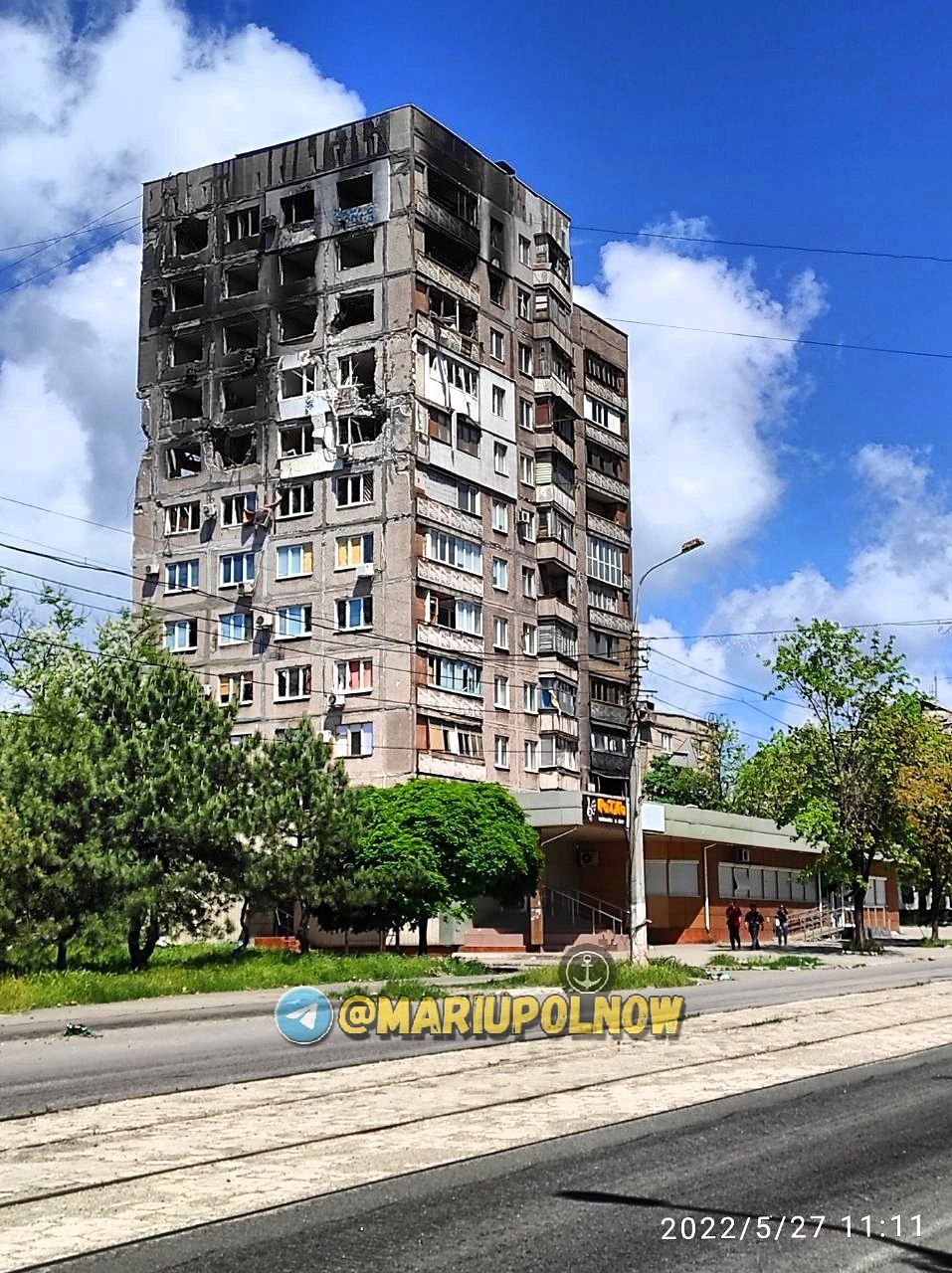
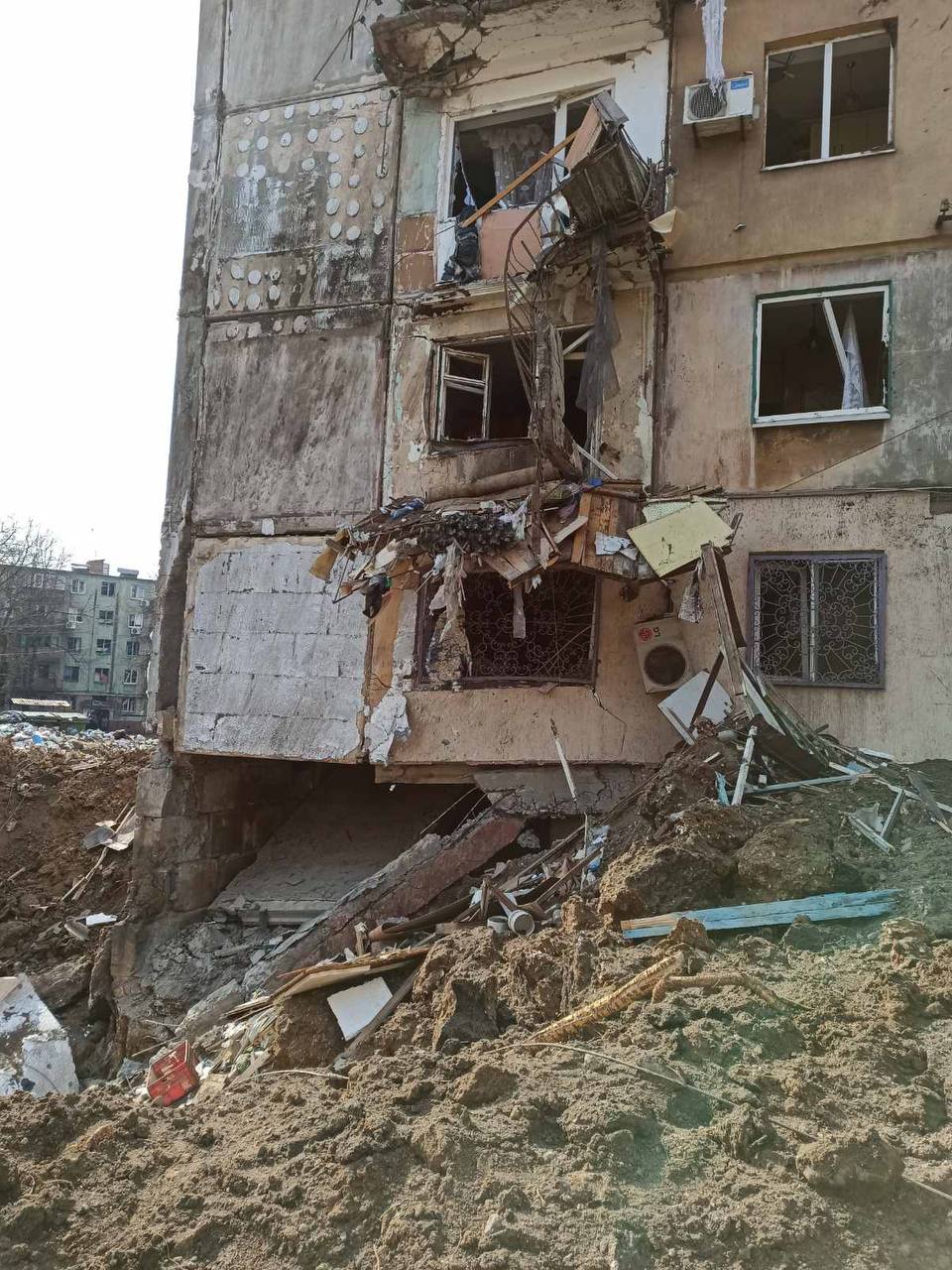
THE LAST VIOLIN OF MARIUPOL
“We covered 15 kilometers to Mangush in 9 hours. There were many ruscist checkpoints and tanks on the way. It was very cold, but we saved fuel and did not turn the heat on. I forbade my mother to look out the window and told her to pray. I never believed in God, but I also prayed all the way.”
With sincere gratitude, the girl remembers how the Mangush nurses let her and her companions spend the night in the hospital ward and gave them hot tea and coffee. The next morning, the Mariupol residents left for Berdyansk.
Daria’s mother’s violin was in the trunk. The woman went to the music school in Mariupol to take it secretly from her daughter. When Daria found out about it, she was very angry with her mother. However, her mom was very happy that she took her violin. The ruscists checked them at all the checkpoints, because they thought there was a machine gun in the violin case.
“I WENT MAD AND APPROACHED THE RUSCISTS”
Daria drove to Berdyansk at breakneck speed. They were running out of fuel. The girl understood that it would be next to impossible to buy diesel oil, and therefore they would not get to Zaporizhzhia.
“I saw ruscist military vehicles. I went mad, approached them and said: “Give me some diesel oil.” At first they refused, but later explained that no one would give it during the day, and told me to come at night after curfew. I took two canisters and went there at 7 pm. The boy who promised me to give fuel was not there. The occupiers said that vehicles were around the corner.
There were 8 men in uniform, bulletproof vests, with machine guns and grenades; only one of them was of Slavic appearance. I said that we need diesel oil to leave. They offered to stay with them and promised to help. They asked why we treat them badly in spite of the fact they came to save us. It was very disgusting to listen to, but I understood that I had to be silent to save my life. I burst into tears, and they brought a 20-liter canister with diesel oil. They also offered tea, asked if there was a child, because they could give milk, butter, cookies. I knew that the house where we stayed had a lot of children and no food. She said them to give everything they can. They gave me a huge box of baby food, and at 8 o’clock in the evening I returned to my family.”
“We took a hot shower for the first time in Berdyansk. I stood under the hot jets of water and just sobbed. After what we’d been through, you begin to appreciate seemingly insignificant things. When someone brought a cigarette and offered to smoke for three, when someone brought a candy or held your hand.”
On the way to Zaporizhzhia, at every checkpoint the men were ordered to undress; the orcs checked them for tattoos and traces of rifles; they also checked our phones: Telegram channels and photo galleries.
“When we entered Zaporizhzhia, we saw blue and yellow flags, our military with blue ribbons. I was crying, I wanted to run out of the car and hug everyone. When you spend a month among these pig dogs, it is an incredible emotion to see our people.”
“DON’T BE AFRAID OF THE DEAD, BE AFRAIAD OF THE LIVING”
I ask Daria what was the scariest thing for her. For a person who has hardly seen the horrors of war and does not know the sound of aerial bombardment, the answer was unexpected:
“The scariest thing is when the plane flies. You won’t get anywhere from it. You see what it can do. The heart just stops. Don’t be afraid of the dead, be afraid of the living. You get used to the dead. Yes, corpses are unpleasant. What you see catches up to you later. Because you involuntarily recall it. These pictures can keep you awake. But there is nothing scarier than airplanes. The greatest fear is the fear of death.
I often dream of Mariupol, both intact and bombed: I’m looking for something, I’m running away somewhere. Sometimes I dream that victory has come, and we return there. It was a very beautiful city, a lot of memories, friends, my family – grandparents; my father was buried in Mariupol. I really want to go home.
After that, I began experiencing problems with my psyche and nerves. When I heard thunder, I had hysterics for half the night; the sound of the plane paralyzed me on the street. Many people think that they can help themselves, but this is often not the case. The psychologist did not help me anymore; I turned to a psychiatrist, who helped me to stabilize my mental state and now I feel well.
According to unofficial data as of August 2022, 87,000 dead were recorded in Mariupol. But there are still bodies in the courtyards, in mass graves, people are buried alive in basements, under the drama theater, and some of them don’t even have bodies left. This is every fifth resident of Mariupol. I don’t understand how I survived.”
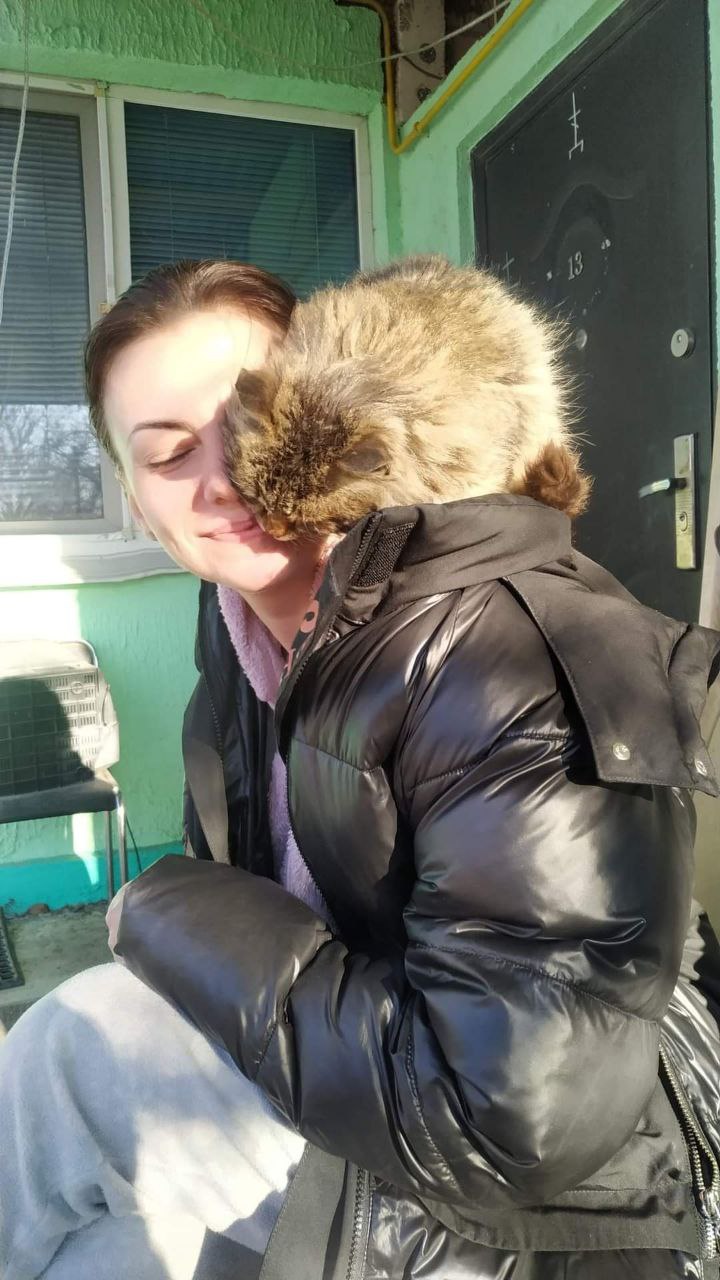
Ksenia Shokina, Uzhhorod
30.09.2022


